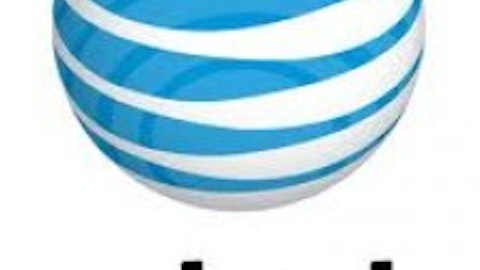
In their cynical perspectives, premium radio may be hot now, but it’s simply a manner of time before the disruptor of terrestrial radio service gets disrupted itself.
The lead candidate for disruption is the connected car, as drivers with seamless access to online access can choose from the limitless number of apps that provider entertainment and edutainment on the open road.
Sirius XM Radio Inc (NASDAQ:SIRI) naturally doesn’t see it that way, and CFO David Frear had a chance to argue his company’s side of the story at this week’s Piper Jaffray Technology, Media and Telecommunications Conference.
Driving with the headlights on
Logic would seem to dictate that connectivity isn’t Sirius XM Radio Inc (NASDAQ:SIRI)’s friend, but Frear believes that the ability to serve content via satellite is still a differentiator.
Sirius XM has never shied away from the Internet. It’s been offering online streaming since 2003. It was originally included with every subscription, but now is offered as a stand-alone product. Customers can pay $14.49 a month for an Internet radio account. Existing receiver-based subscribers can pay $3.50 a month for online access.
However, the rub is that countless apps are available for less if not entirely free in ad-supported form.
Pandora Media Inc (NYSE:P)‘s recent move to begin charging mobile users who want more than 40 hours a month maybe a sign of desperation as it struggles to turn a profit, but it’s also a testament to its popularity. It’s attracting more than 67 million unique monthly users, consuming nearly 1.4 billion hours of content a month. Spotify is now up to 6 million premium subscriptions. These are companies growing faster than Sirius XM Radio Inc (NASDAQ:SIRI), and automakers will continue to make things easier for them to reach your ears as you drive.
General Motors Company (NYSE:GM) is teaming up with AT&T Inc. (NYSE:T) to offer 4G mobile hotspots in most of the 2015 model-year Chevy, Buick, GMC, and Cadillac vehicles that will hit the market next year.
Frear was slightly dismissive of the deal, pointing out how it will be great for AT&T Inc. (NYSE:T) wireless customers, but a much harder sell for the vast majority of General Motors Company (NYSE:GM) drivers on other carriers.
He has a point. As the mobile market moves to shared data plans across several wireless devices it may seem odd to pair up with a single carrier. However, didn’t automakers go through a similar situation years ago in offering either Sirius or XM at a time when the platforms were far more distinctive than they are today?
The car of tomorrow is here today
Frear isn’t naive. He knows that connected cars will explode in popularity in the coming years. Sirius XM Radio Inc (NASDAQ:SIRI)’s moves to fortify its streaming offering — from last year’s addition of on-demand selections to its Pandora-esque MySXM personalized radio platform that rolled out in beta earlier this year — anticipate a future where more audio is consumed through wireless devices.





